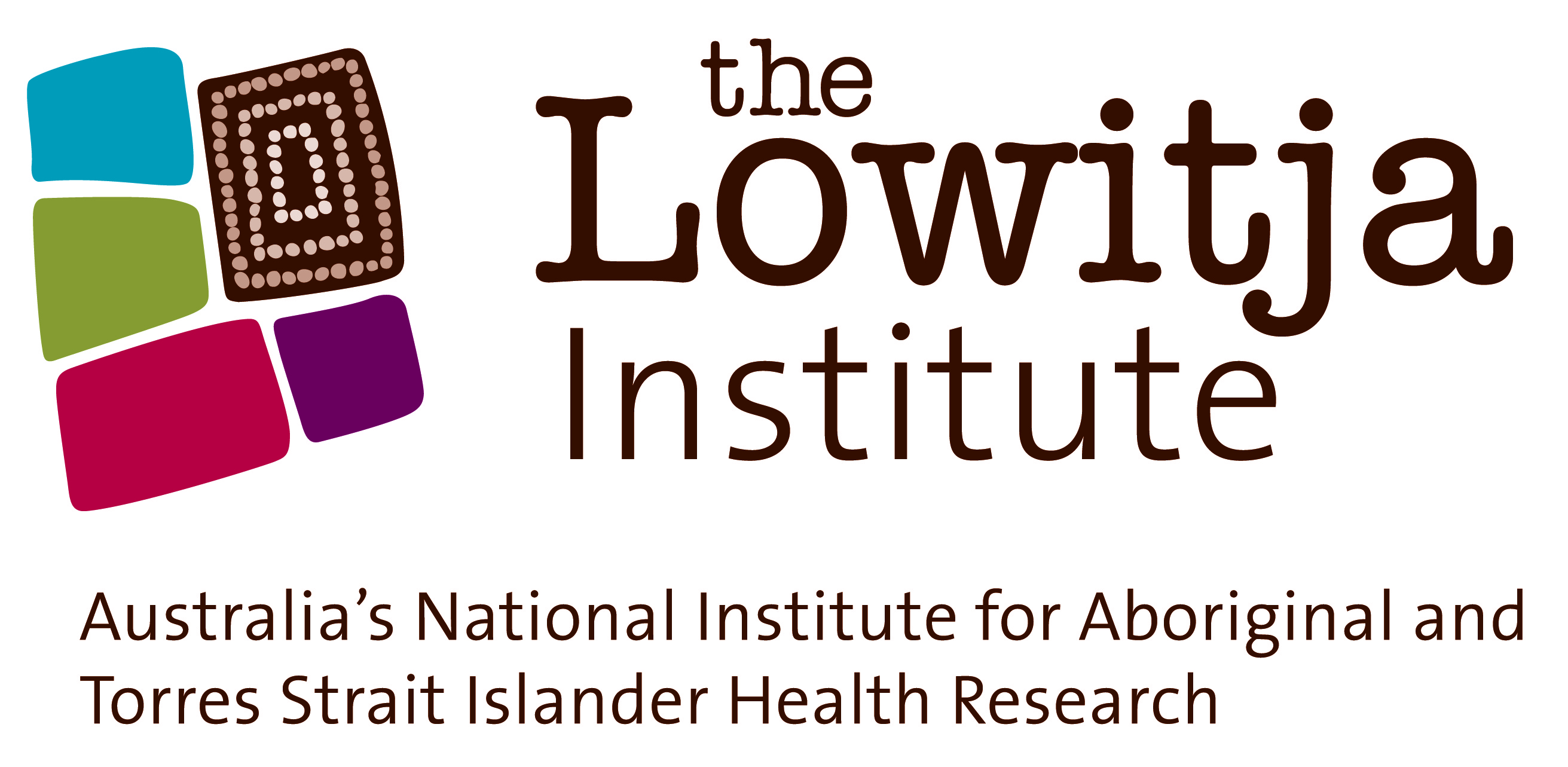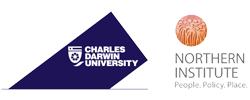Living in two worlds
As the other sections of this website demonstrate, learning within the Yolŋu world is the priority in early childhood. However, there are many influences from rapid cultural change since the first mission was established in the study community almost 80 years ago. Elements of Balanda culture are sometimes integrated in the process of learning within the Yolŋu world, for example through the use of technology and through music and songs.
Yolŋu families also recognise that is important for their children to have the skills and knowledge to connect with the Balanda world - this is reflected in their dreams for their children's future. Engaging with playgroup, preschool and school are the ways in which they hope their children will develop the Balanda skills and knowledge they need for living in both worlds. They also introduce English language and concepts at home - the extent to which this happens varies between families and at different stages in the child's development.
Strong learning in both worlds but maintaining a balance - so the Balanda world does not overcome Yolŋu - is important for many families:
When we go hunting, that is our responsibility, our culture, so we can teach our children, the child that sits on our lap. Yes, we get the child in our arms, we rock the child, sing songs to them, teach them so they can learn about everything for later on, when the child has grown and in the future they can tell their children and say my mother sang to me into my ears and that is still culture. So the child learns and then passes it on to their children later in life. Teach them about what wild foods are out there, ganguri (wild yam), maypal (shellfish), or djitama (wild bush potato) we collect them, and the children will watch on how we cook them in the ground oven and then prepare it. It is still a part of learning, that’s how they should live, yes they should learn both sides - the laws and culture, language, English and Yolŋu language (Yolŋu mother).
So the child can see two ways, Balanda and Yolŋu, so the child can hold on to two laws in the one, the Balanda way and the Yolŋu way. So they can fly fast in their growth, their brains will be far smarter in Balanda and Yolŋu, in both ways they will learn, of all in this world... (Yolŋu mother).
Yolŋu thinking - we've got different education - we go to ceremonies, we go hunting, we make baskets - our culture - writing and reading is not in our culture, no paper - our ancestors didn't know, they lived a free life, they didn't see money or paper - it was just trees, leaves, bush...Before our ancestors were like that but today - we are in two worlds and we have to balance both worlds - we have to see what the Balanda world is - to learn more and more about education - there are many things that need to go through education - health, money, finance, government...if Balanda hadn't come we would have been free people... now, we are thinking about dreams and goals to happen for our kids future because we are now in a new generation and we need to help our children to get proper education and proper environment of own housing and own family (Yalŋarra Guyula, Yolŋu researcher).
Balanda education is also seen as important so Yolŋu are able to protect their culture and environment by being able to communicate with Balanda and understand the western systems:
Education in the Yolŋu world is for his identity who he is.... And Balanda education, 'cause everything is coming up and just covering the Yolŋu... To be independent - that’s why education to this western world is very important for our kids. So in long run they can stand, and talk about the land and the language and the clan and talk about the ceremony (Jane Garrutju, Yolŋu elder and researcher)
Dreaming of the future
Although Yolŋu rarely talk of ambitions for their children to follow specific careers, as explained below, 'becoming a strong leader' is a dream that some Yolŋu families have for their children:
I do have to make my kids understand this more and balance (two worlds) together. So that in future there has to be a strong leader in this community. I always tell story to my kids – that there’s no power in Yolŋu – in our community, Yolŋu – to ask government to, you know, do this and that for us. So it’s better: education is the only key....And for our community as well. And to fight for our rights. And this is the only way – I know there’s a blocks there standing, and that’s the part of challenges. That’s why I plan, cause I’m on the waiting list, so I can get a new house, and so I can buy their laptop or a computer to their rooms and try... (Gudjuk's mother)
I’m trying to teach him to be a leader... Teaching, not involved with people on either side, middle.... when there’s a problem, try make it peaceful for both sides (Gamarraŋ's father)
...we've got a dream but we don't tell anyone because something has to happen secretly - we don't want to explain or tell everything about what our goal is. We often hear the question 'what's your goal?' but Yolŋu don't plan a goal because it's a magic, secret - then we see a child get a good job or scholarship - that's because we don't share our goal until it happens... If you talk, talk about their future you can make that child proud - then they will be wild... (Yolŋu researcher)
Two worlds together in learning and play
Much of the learning in early childhood is focused on Yolŋu skills and knowledge - but often this learning is supported through new technology such as using mobile phones and ipads. From infancy Yolŋu children are given phones to play with - to watch a video, listen to songs or later to play games. Much of the content they are exposed to is from the Yolŋu world - photos and videos of family hunting or at ceremony and songs from popular Yolŋu musicians. Balanda nursery rhymes are also popular as well as children's movies and games.
Young children's skills in remembering passwords, navigating around an ipad or calling family (often accidentally) are monitored, valued and celebrated.
Skills from both worlds are also practiced in play. For example, Gutjan pretends to watch television then makes a 'computer' in the sand in the video below.
Sometimes teaching of Balanda skills and knowledge also happens within the Yolŋu environment:



